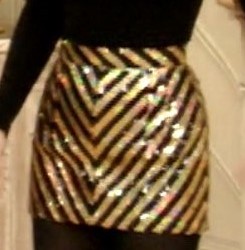Text
Wall of Death - Richard & Linda Thompson
Let me ride on the wall of death One more time
Let me ride on the wall of death One more time
You can waste your time on the other rides This is the nearest to being alive
Let me take my chances on the wall of death
You can go with with the crazy people in the crooked house
You can fly away on the rocket, or spin in the mouse
The tunnel of love might amuse you Noah’s ark might confuse you
Let me take my chances on the wall of death
On the wall of death, all the world is far from me
On the wall of death, its the nearest to being free
5 notes
·
View notes
Photo







30 days - 30 languages Our world is and has been home to thousands upon thousands of languages. This 30 days 30 languages blogpost project is to celebrate those languages that I personally find interesting, the commonplace ones and the more far-found, the extant and the extinct. Day 3 - Basque Linguonym: Euskara Family: Non-Indo-European, Language Isolate (Vasconic Family) Location: Basque Autonomous Region in Northern Spain and Southern France (main) Status: Extant with ~720,000 speakers Personal Knowledge: Acquaintance Level
Basque is a unique language, being a perceived language isolate. It’s a non-Indo-European language which is a rarity to see in Europe, and Basque has no other languages related to it, except its dead ancestor languages of Aquitanian and Old Basque. Many attempts have been made to try and tie Basque to other languages, yet none have been substantial in their evidence. Thus, the Basque language is believed to be one of Europe’s original and indigenous languages, having arisen out from the Stone Age, whereas most of Europe’s languages are of Indo-European origin having spread out into Europe from the Middle East, not being indigenous to the land. This is partially evidenced by the fact that the areas within and very near to the Basque region have the oldest known cave paintings in all of Europe which could have quite likely been created by the ancestors of the Basques. Basque has miraculously held its position and thrivance over history despite many threats to the language such as the spread and influence of the Roman Empire, which Basque survived by being native to mountaineous regions that were harder to reach. Basque also survived being marginalised as a language by Spain’s suppression of the language, and presently now is maintained by Basque Language Academy who governs and plans the language. The Basque language itself has 27 letters, with ç being counted as a variant of c and not as its own separate letter, letters C/Ç/Q/V/W/Y are used but only in loanwords. S and Z hold interesting positions in that they’re both a voiceless sound yet, S is the rather normal S sound, while Z is an S sound made by almost touching the tongue to the teeth creating a higher pitch. Basque’s R is also much like a flap sound like the T in the English word city.
The language is typically subject-object-verb word order, but one very fascinating aspect is the fact that Basque is not the typically seen Nominative-Accusative language, but rather Basque is Ergative-Absolutive. This means that Basque marks its subjects of intransitive sentences aka sentences which cannot contain an object, and its transitive objects, whereas nominative-accusative languages keep the subject forms the same whether or not the sentence is intransitive or transitive but marks its objects differently. For example… French: Nominative-Accusative system Intransitive: (The man) He arrived - Il est arrivé Transitive: (The man) He sees him (the boy) - Il le voit. Note that the subject stays the same as “il” for he. But in Basque… Intransitive: The man arrived - Gizona etorri da. Transitive: The man sees the boy - Gizonak mutila ikusi du Note that the subject differs as “gizona” for the man in a sentence without an object, but changes to “gizonak” for the man in a sentence with an object. However, if mutila - boy, was replaced by man, it would appear as “gizona” just like the subject of an intransitive sentence has. So the boy sees the man would appear as mutilak gizona ikusi du. Thus -k marks for transitive subjects.
Verbs in Basque rely heavily on auxiliaries, meaning using -ing forms with a main verb and helping verb aspect. For example in the sentence above, “gizona etorri da”, etorri is acting as the verb for arrive/come, while da is acting as the helping verb, thus the actual translation would be something like “He is come”. Also, Basque holds a very extensive amount of cases aside from absolutive and ergative: dative (to/for/from someone/something), inessive (in/at/on a place or time), allative (to somewhere), ablative (from/since/through something or somewhere), local genitive (of a place/time), possessive genitive (of a person/thing), instrumental (with/by way of using something), comitative (with/together with someone), benefactive (for the benefit of someone/something), and causal (because of/due to something). The extensiveness of cases can be quite intimidating to modern Romance and Germanic language speakers. Some words in Basque… izar - star liburu - book hiri - city itxaropen - hope Euskal Herria - Basque Country Kaixo - hello zuri - white ezker - left (thought to be where Spanish ‘izquierda’ comes from) Ni ~ naiz - my name is ~ egunon - good morning
Basque is one of the most mysterious languages in modern Europe, and perhaps the oldest European language, having survived millennia amongst much linguistic adversity. Sitting on the beautiful coasts of Spain and France, surrounded by the Pyrenees mountains, Basque is a language of uniqueness for one’s repertoire, if you’re interested, check it out sometime…
Be sure to check out the 30 Days 30 Languages Masterpost to catch all of the languages and the updates for future ones in this series.
[Day 2: Icelandic] - 30 Days, 30 Languages - [Day 4: Serbo-Croatian]
224 notes
·
View notes
Photo


Gym Bus a gym on wheels. 279 south by Coroapolis, and Neville Island.
0 notes
Photo










X-Ray Photographs From the 1930s Expose the Delicate Details of Roses and Lilies
A selection of Tasker’s X-ray images can be seen in the exhibition “Floral Studies” at Joseph Bellows Gallery in La Jolla, California which runs through February 19, 2016.
459 notes
·
View notes
Photo

Or if your momma was from the hood
0 notes
Text
Hobo’s Lullaby
I know the police cause you trouble
They cause trouble everywhere
But when you die and go to heaven
You’ll find no policemen there
0 notes
Text
I will actually never get over how fucking dumb Romeo and Juliet are
388K notes
·
View notes
Photo

32K notes
·
View notes
Quote
Take it easy, but take it.
Woody Guthrie (via teenager90s)
10K notes
·
View notes















